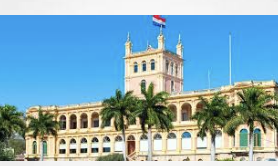France 24 reports
The French National Agency for the Safety of Medicines and Health Products (ANSM) has until the end of the year to authorise approved cannabis-based products for medicinal use. Those products will then be granted temporary approval for five years – with scope for them be renewed indefinitely – pending a decision by European authorities to market the drugs.
Until then, the patients who were part of the trial will continue to have access to cannabis-based medicines. But as of Wednesday March 27, no new participants are able to join the trial.
A total of 3,035 people took part in the unprecedented experiment and 1,842 are still receiving treatment today.
An unprecedented experiment
Before the trial was first launched across 275 health facilities in the country, a committee of interdisciplinary scientists – consisting mostly of healthcare professionals and patients – was set up. Together, they defined the conditions under which the experiment would be rolled out, what medicines would be used, the training pharmacists and doctors would receive, how patients would be monitored and the information they would receive.
Health authorities then allowed limited prescriptions for people suffering from five specific conditions: neuropathic pain, some drug-resistant forms of epilepsy, intense oncology symptoms related to cancer or cancer treatment, palliative situations and pathologies that affect the nervous system, like multiple sclerosis.
Patients were only prescribed cannabis-based medicines if available treatment was found to be insufficient, or if they presented an aversion to existing drugs.
…/…
Based on the five medical conditions that warrant this type of treatment, Authier estimates that between 150,000 and 300,000 people in France could be prescribed cannabis-based medicines, meaning that an entire industry has been holding its breath for the roll-out of the drugs.
While suppliers of the cannabis-based medicines used in the years-long trial were Israeli, Australian and German companies – those tasked with distribution were French.
Along with Germany, France could become the biggest market for medical cannabis in Europe, according to French daily Le Monde.
But despite the promise of a booming market, introducing these drugs to the French market and even getting the trial off the ground has been anything but a bed of roses.
The bad rep of cannabis in France
A few days ago, while attending a Senate hearing on the impact of drug trafficking in France, Finance Minister Bruno le Maire reiterated his position that the decriminalisation of cannabis was a no-go.
“Cannabis is cool and cocaine is chic. That is the social representation of drugs,” he said. “But in reality, the two are poisons. They are both destructive and contribute to the undermining of French society as a whole.”
Despite France being one of the biggest cannabis consumers in Europe, it also has some of the toughest laws against the drug. THC is still classified as a narcotic in France, with the maximum level permitted in any cannabis plant limited to 0.3 percent. CBD is legal as long as the cannabis plant does not exceed the permitted levels of THC.
There is still a lot of stigma around cannabis in France, even though public opinion on its medical use is hugely encouraging. According to a 2019 survey by the national Observatory for Drugs and Addictive Tendencies, 91 percent of French people say they are in favour of doctors prescribing cannabis-based medicines “for certain serious or chronic illnesses”.
Read full report


















